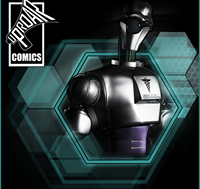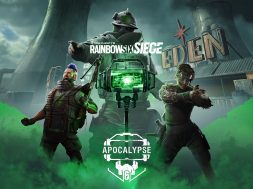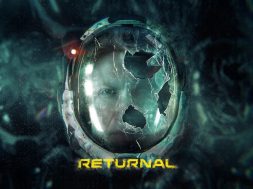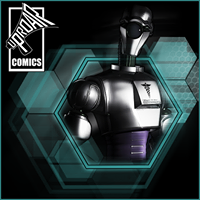
Review: Leap #0
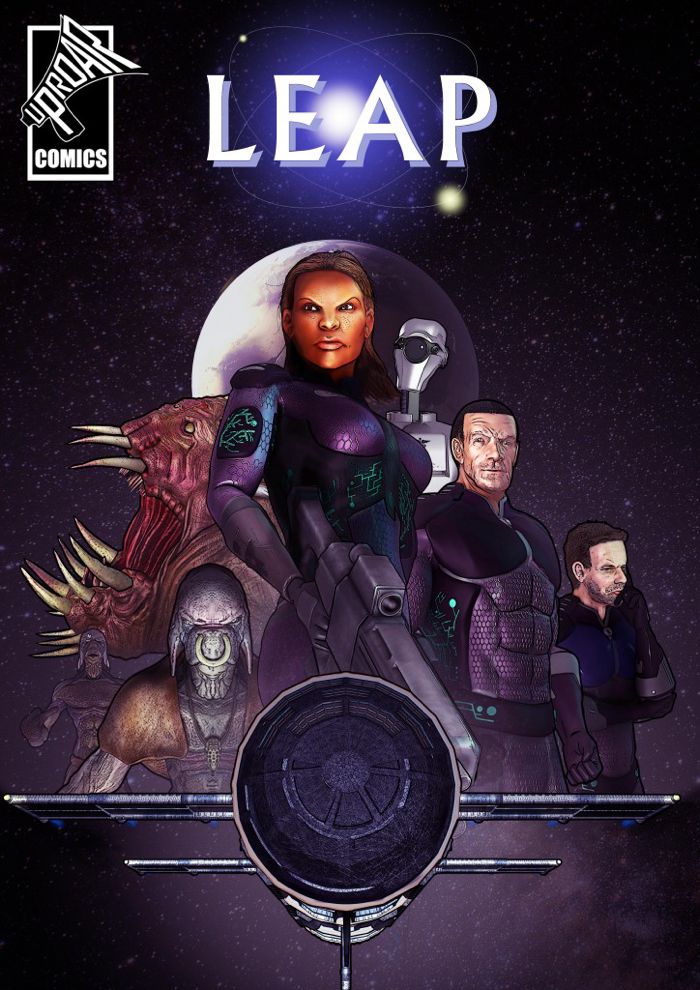 Up to now, Uproar Comics’ stock in trade has been gory zombie-horror books, and the first issue of this “space-faring neo-science fiction epic” series marks their first foray into “proper” sci-fi in the space ships-and-E.T.s vein. It’s also part of a larger transmedia project that will include an animated version of this story, mini-games, and Cribs-style tours of the creators’ houses (okay, not the last one.)
Up to now, Uproar Comics’ stock in trade has been gory zombie-horror books, and the first issue of this “space-faring neo-science fiction epic” series marks their first foray into “proper” sci-fi in the space ships-and-E.T.s vein. It’s also part of a larger transmedia project that will include an animated version of this story, mini-games, and Cribs-style tours of the creators’ houses (okay, not the last one.)
Transmedia is all well and good, but very often the comics produced for these projects end up feeling like shallow companion pieces, and it’s difficult to review them out of context. And that’s just one of the things working to undermine the enjoyment of Leap as a standalone book.
Plot-wise, it’s mostly set-up . The crew of the Vanguard, travelling deep space to discover new planets to mine for fossil fuels, awake from stasis and get into shenanigans with the primitive alien natives and groovy monsters on the planet’s surface. There’s a corporation involved, some dark secrecy, and mech-on-monster action. It’s clear from the beginning that Danny McLaughlin and the Uproar team (oddly, there are no specific credits on the cover or in the book) are shooting for an Alien-esque vibe, but its melodramatic, exposition-heavy tone feels more like the heady cheese of Prometheus rather than that classic movie.
All the explanation has a detrimental effect on the characterisation. We’re treated to a crew of archetypes – badass female leader with a secret, science nerd and gung-ho weapons guy respectively – set out to drive the plot forward rather than develop as people to any great degree, spending more time on the whats whens and wheres of a situation most sci-fi fans will have seen before. The nameless aliens actually get the lion’s share of development, and their existence of god arc feels much more natural and more dramatic, but it comes across as an afterthought in favour of the dispassionate main story.
This lack of human drama is compounded by the digital cel-shaded art style, which excels in glossy depictions of ships, planets, spacescapes and clean crisp colours, but lacks the emotional range of standard comic book art. We get that the ship’s commanding officer Anna is angry or worried, but it’s hard for a reader to sympathise when her face looks like the frozen visage of a videogame character, which it doubtless is, given its transmedia roots. The lettering is on the wrong side of repetitive at times, too, not dynamic enough to really put over the alien roars and the booms of ship engines.
None of these problems are new, of course. Sci-fi stories without number suffer from concentrating too much on the packaging rather than the people, and getting the balance right is extraordinarily difficult. Thankfully, the folks at Team Uproar do seem to know what they’re dealing with. Mc Laughlin points out in the notes that Leap is a “love-letter” to the sci-fi tomes and texts of their youth, and the book is littered with cool touches and knowing nods to the teams’ influences – alien children are called “younglings” for instance – that are fun to spot, and dialogue moments are pleasingly tongue-in-cheek. When a man in a mechanical suit stands before cowering aliens proclaiming “I…Am…GOD!” it’s hard not to crack a smile.
Leap doesn’t boldly go anywhere sci-fi fans won’t have gone before, and it edges towards the derivative at its worst, but in no way does it plumb the depths of badness that say, the Total Recall remake did. It’s likely that the best way to experience this book is to read it in tandem with the mini-games and animations as and when they’re released, but on its own, Leap is competently executed and nicely presented, but is too detached to be truly memorable.
The book can be purchased at http://www.uproarcomics.co.uk/shopping/
[easyreview cat1title=”The Arcade Verdict” cat1detail=”Not nearly as neo-sci-fi as it claims to be, but diverting enough to make future issues an attractive prospect. ” cat1rating=”6″]
